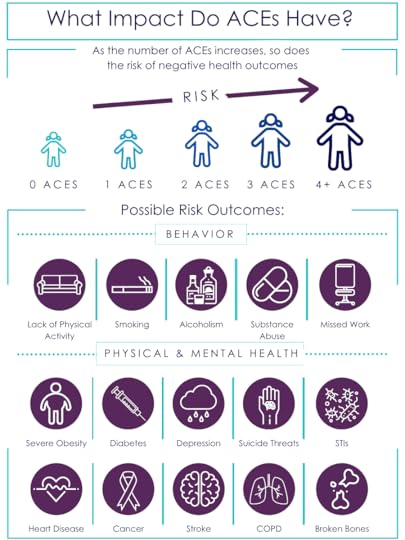What do you think?
Rate this book


272 pages, Hardcover
First published January 23, 2018

1. Reduce trauma"You shift the frame, you change the lens, and all at once the world is revealed, and nothing is the same" (p. 212).
2. Strengthen the caregiver's ability to be a healthy buffer
3. Teach strategies that can "reset" the stress response and heal a person (sleep, exercise, mindfulness, healthy relationships, challenge irrational thinking, etc.)